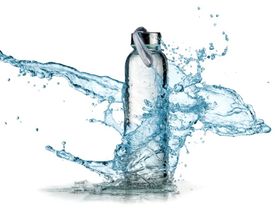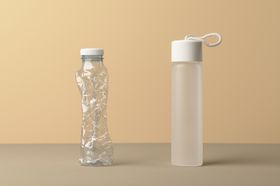Eco-Friendliness of Borosilicate Glass
Updated February 5, 2025

Today, buying a disposable plastic bottle is ludicrous considering the state of the world and all available alternatives. Great improvements can be made with small changes to everyday habits, including purchasing a reusable bottle. In this post, we'll discuss the eco-friendliness of borosilicate glass as a reusable water bottle.
Is Borosilicate Glass Eco-Friendly?
Borosilicate glass is unique and incorporates two chemicals in high concentration, boron trioxide and silica. Just like regular glass, borosilicate is recyclable and completely non-toxic.
Plastic water bottles are detrimental to the environment. They're made of petroleum and mostly end up in the ocean or landfills. Studies have shown that only 9 percent of all plastic gets recycled. While recycling is encouraged, the process of breaking down and reusing plastics results in a heavy carbon footprint. Borosilicate glass is eco-friendly because it's made from naturally abundant resources that are more easily accessible than oil. If handled properly, a borosilicate glass bottle will last a lifetime.
Apart from being environmentally friendly, borosilicate glass has other advantages:
- Resists acid degradation and chemicals, so there's no need to worry about harmful compounds leeching into your water;
- Highly durable, which is what makes it sought-after;
- Manufactured at a higher temperature, making it heat resistant and much stronger; and
- Can be dropped on the floor and will not shatter like regular glass.
Conclusion
If you're considering getting a reusable water bottle, borosilicate glass is one of the best water bottle materials.












































